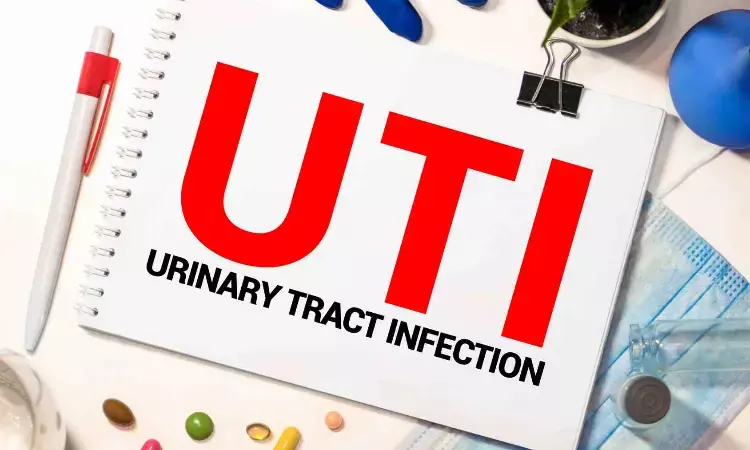- Home
- Medical news & Guidelines
- Anesthesiology
- Cardiology and CTVS
- Critical Care
- Dentistry
- Dermatology
- Diabetes and Endocrinology
- ENT
- Gastroenterology
- Medicine
- Nephrology
- Neurology
- Obstretics-Gynaecology
- Oncology
- Ophthalmology
- Orthopaedics
- Pediatrics-Neonatology
- Psychiatry
- Pulmonology
- Radiology
- Surgery
- Urology
- Laboratory Medicine
- Diet
- Nursing
- Paramedical
- Physiotherapy
- Health news
- Fact Check
- Bone Health Fact Check
- Brain Health Fact Check
- Cancer Related Fact Check
- Child Care Fact Check
- Dental and oral health fact check
- Diabetes and metabolic health fact check
- Diet and Nutrition Fact Check
- Eye and ENT Care Fact Check
- Fitness fact check
- Gut health fact check
- Heart health fact check
- Kidney health fact check
- Medical education fact check
- Men's health fact check
- Respiratory fact check
- Skin and hair care fact check
- Vaccine and Immunization fact check
- Women's health fact check
- AYUSH
- State News
- Andaman and Nicobar Islands
- Andhra Pradesh
- Arunachal Pradesh
- Assam
- Bihar
- Chandigarh
- Chattisgarh
- Dadra and Nagar Haveli
- Daman and Diu
- Delhi
- Goa
- Gujarat
- Haryana
- Himachal Pradesh
- Jammu & Kashmir
- Jharkhand
- Karnataka
- Kerala
- Ladakh
- Lakshadweep
- Madhya Pradesh
- Maharashtra
- Manipur
- Meghalaya
- Mizoram
- Nagaland
- Odisha
- Puducherry
- Punjab
- Rajasthan
- Sikkim
- Tamil Nadu
- Telangana
- Tripura
- Uttar Pradesh
- Uttrakhand
- West Bengal
- Medical Education
- Industry
Hyponatremia Signals Severity in Pediatric Urinary Tract Infections: Study

Researchers have found hyponatremia to be suggestive of a worse disease course in pediatric patients with urinary tract infection (UTI), indicating acute pyelonephritis (APN), raised levels of C-reactive protein (CRP), and renal impairment. UTI is among the most common infections encountered during childhood, with its incidence occurring in about 8% of girls and 2% of boys by the age of seven years. A recent study was conducted by Fu-Wein and colleagues published in BMC Pediatrics journal.
A retrospective review was done on pediatric patients diagnosed with UTI or APN and admitted to a medical center between October 2012 and September 2022. A total of 344 patients were classified into "hyponatremia" (serum sodium levels below normal) or "eunatremia" groups based on their serum sodium concentrations. Data collected included renal ultrasound findings, blood and urine test results, and clinical outcomes. Multivariable logistic regression models were applied to assess potential predictors of disease severity, including serum glucose and CRP levels.
Key Findings
The study involved data from 344 pediatric patients:
• Hyponatremia Prevalence: Hyponatremia was found in 99 patients (28.8%), while normal serum sodium levels were found in 245 (71.2%) patients.
• Association with APN: The hyponatremia group had a higher frequency of APN and renal abnormalities detected on ultrasound.
• CRP Levels: Higher levels of CRP were observed in the hyponatremia group. A significant association was also noted in multivariable analysis (OR: 1.00; 95% CI: 1.00–1.01, p = 0.0417).
• Serum Glucose: Hyperglycemia also has been associated with hyponatremia (OR: 1.01; 95% CI: 1.00–1.03, p = 0.0365).
• Final Diagnosis APN: Hyponatremia was associated with markers of severe disease. No significant direct correlation was seen between the final diagnosis of APN.
Hyponatremia might provide useful biomarkers for significant diseases of hospitalized pediatric UTI. However, the present research shows that although hyponatremia has relationships with systemic inflammation and renal findings, its predictive ability is limited for APN diagnosis. These findings stress the need for further study on the mechanisms and clinical utility of hyponatremia as a predictor of disease severity.
Reference:
Dr Riya Dave has completed dentistry from Gujarat University in 2022. She is a dentist and accomplished medical and scientific writer known for her commitment to bridging the gap between clinical expertise and accessible healthcare information. She has been actively involved in writing blogs related to health and wellness.
Dr Kamal Kant Kohli-MBBS, DTCD- a chest specialist with more than 30 years of practice and a flair for writing clinical articles, Dr Kamal Kant Kohli joined Medical Dialogues as a Chief Editor of Medical News. Besides writing articles, as an editor, he proofreads and verifies all the medical content published on Medical Dialogues including those coming from journals, studies,medical conferences,guidelines etc. Email: drkohli@medicaldialogues.in. Contact no. 011-43720751


